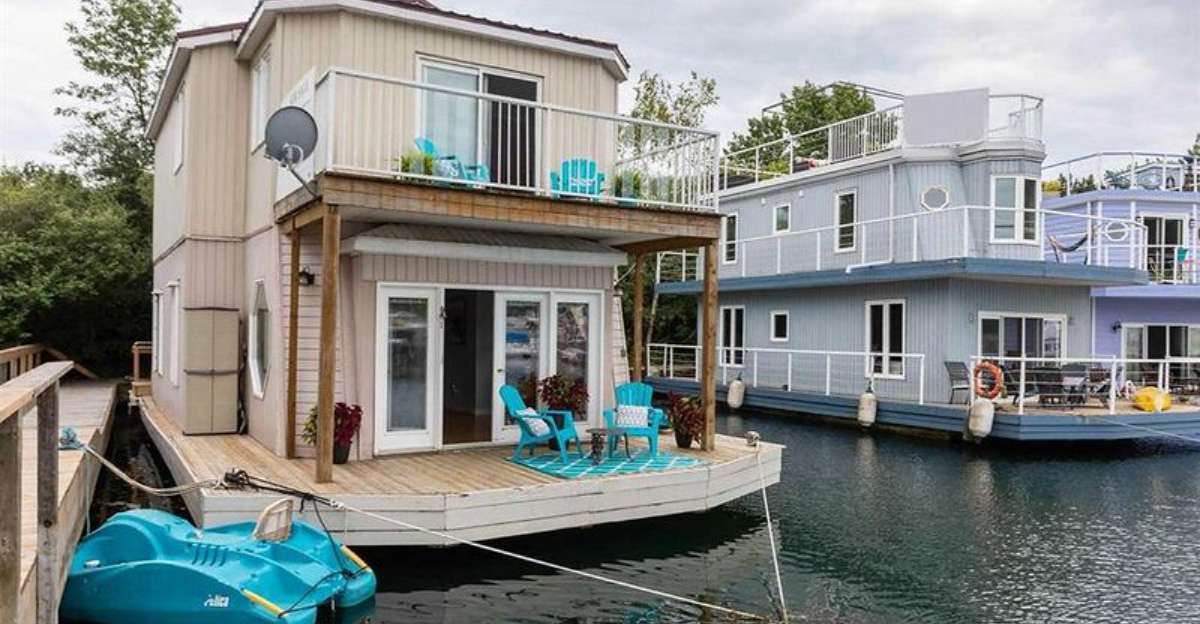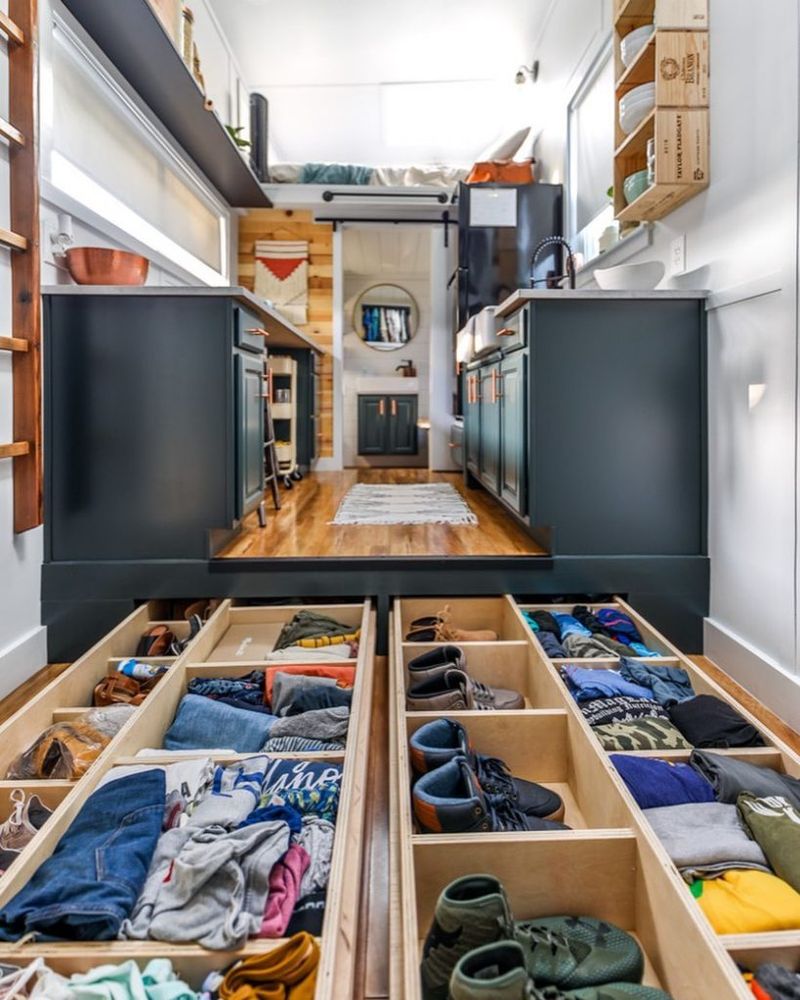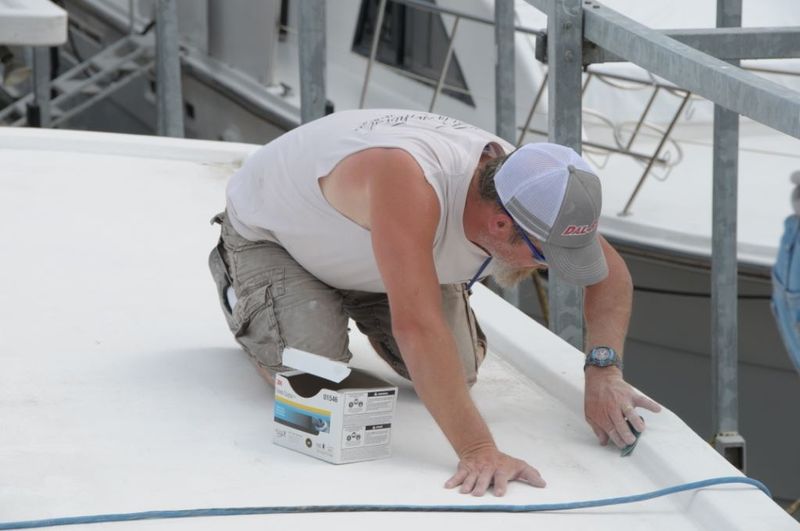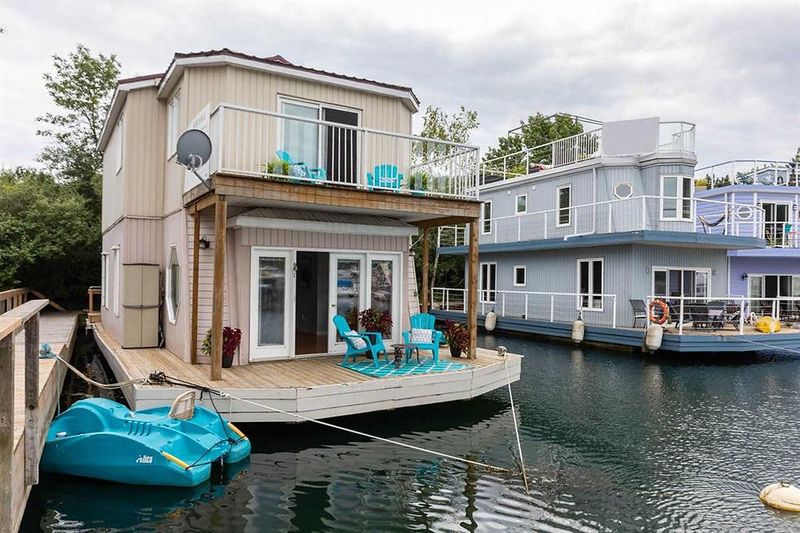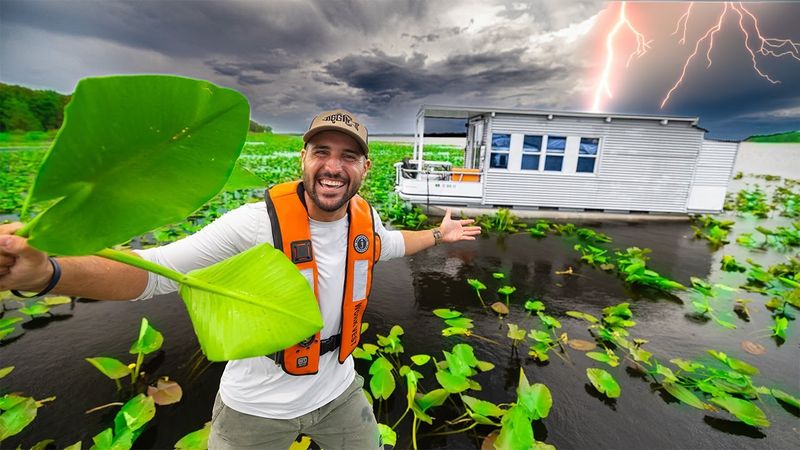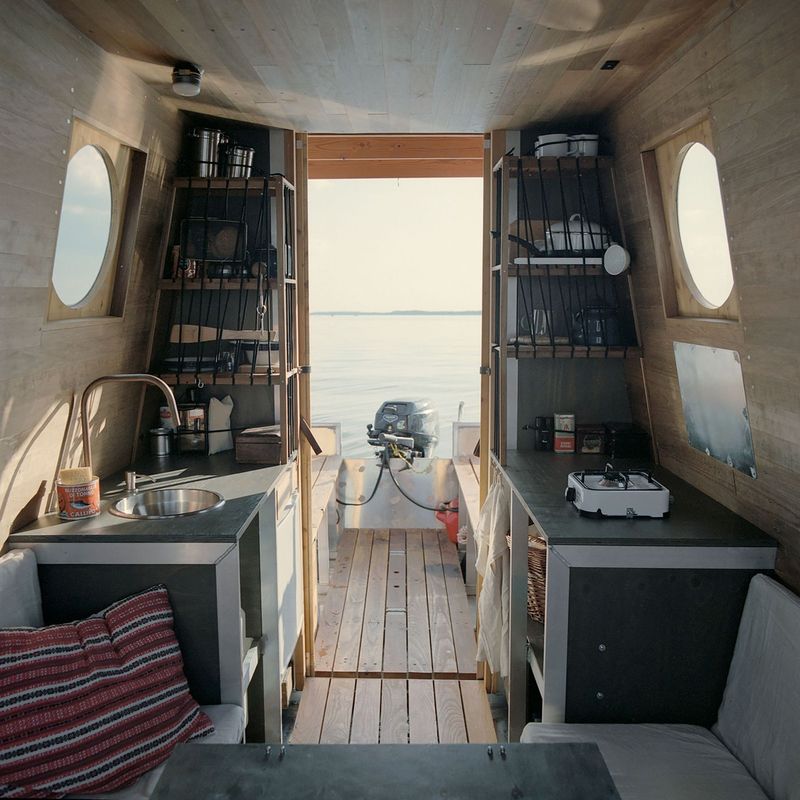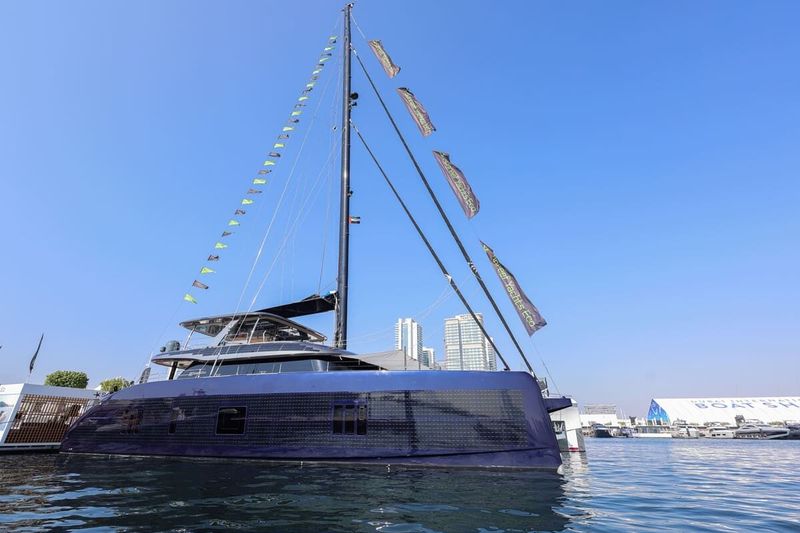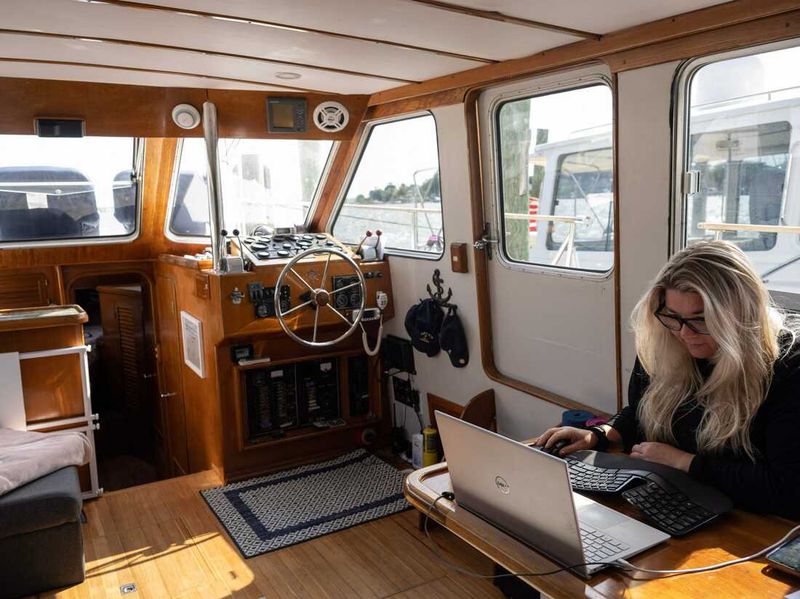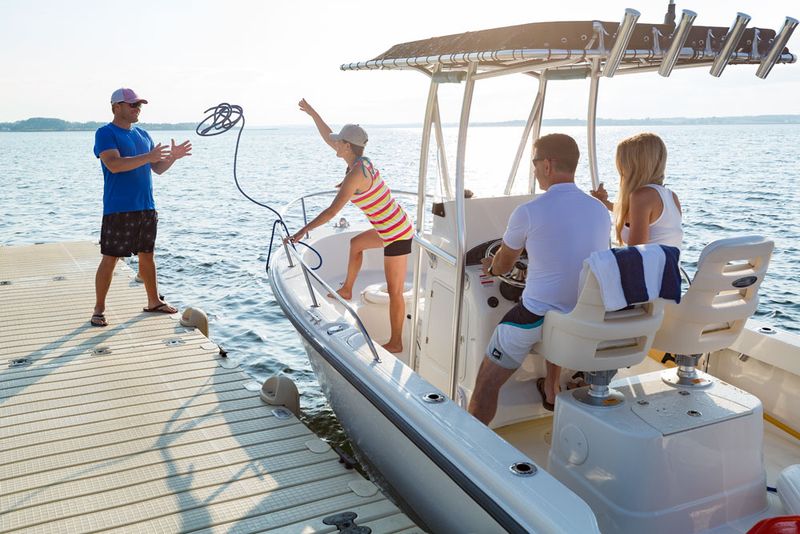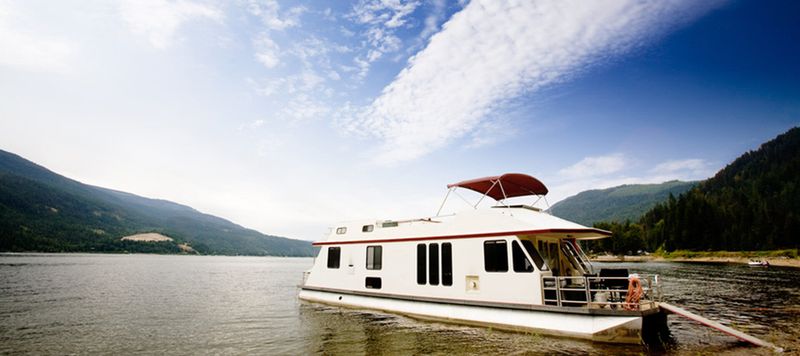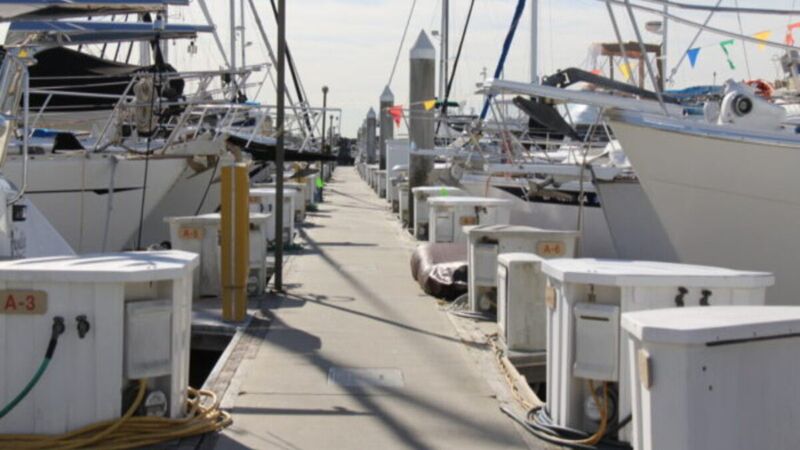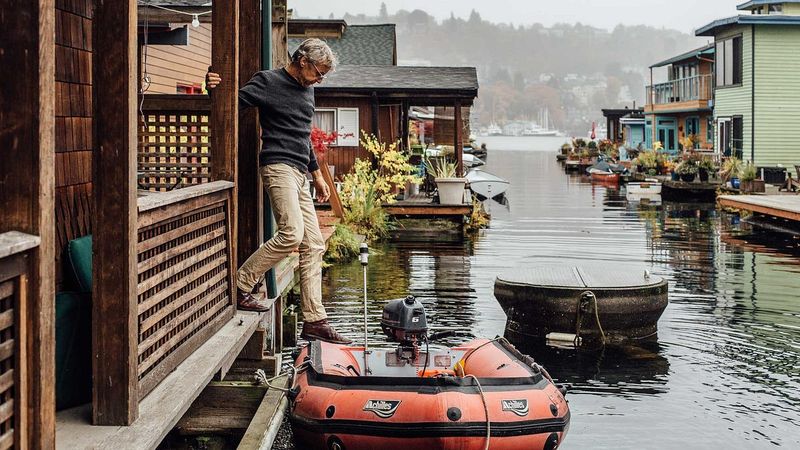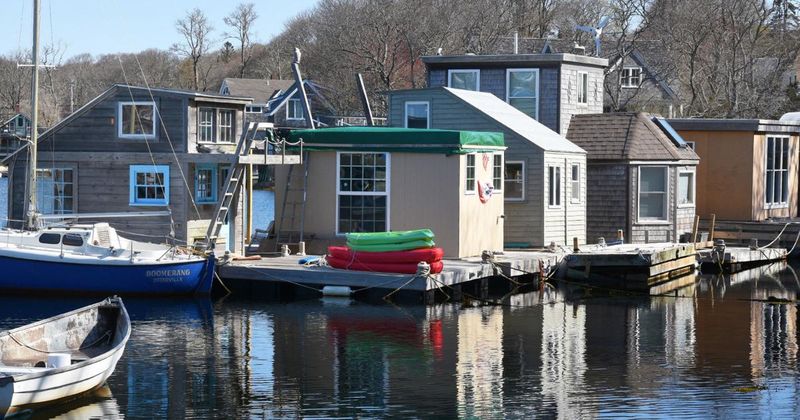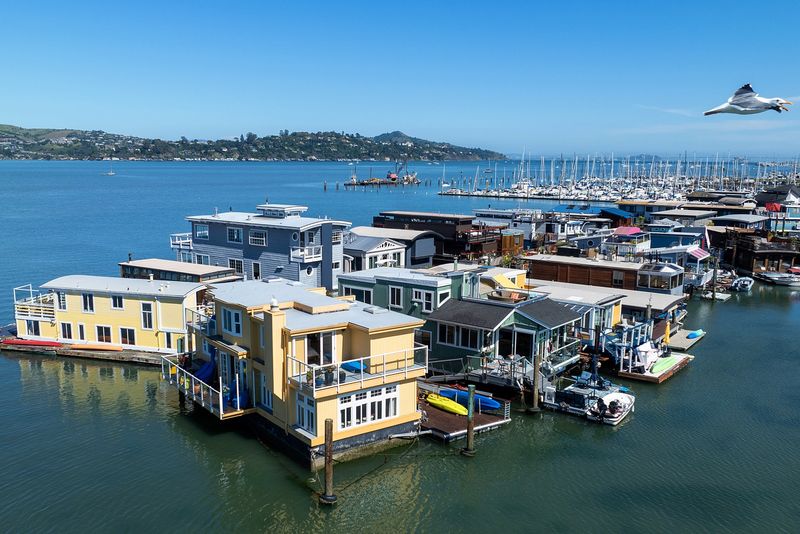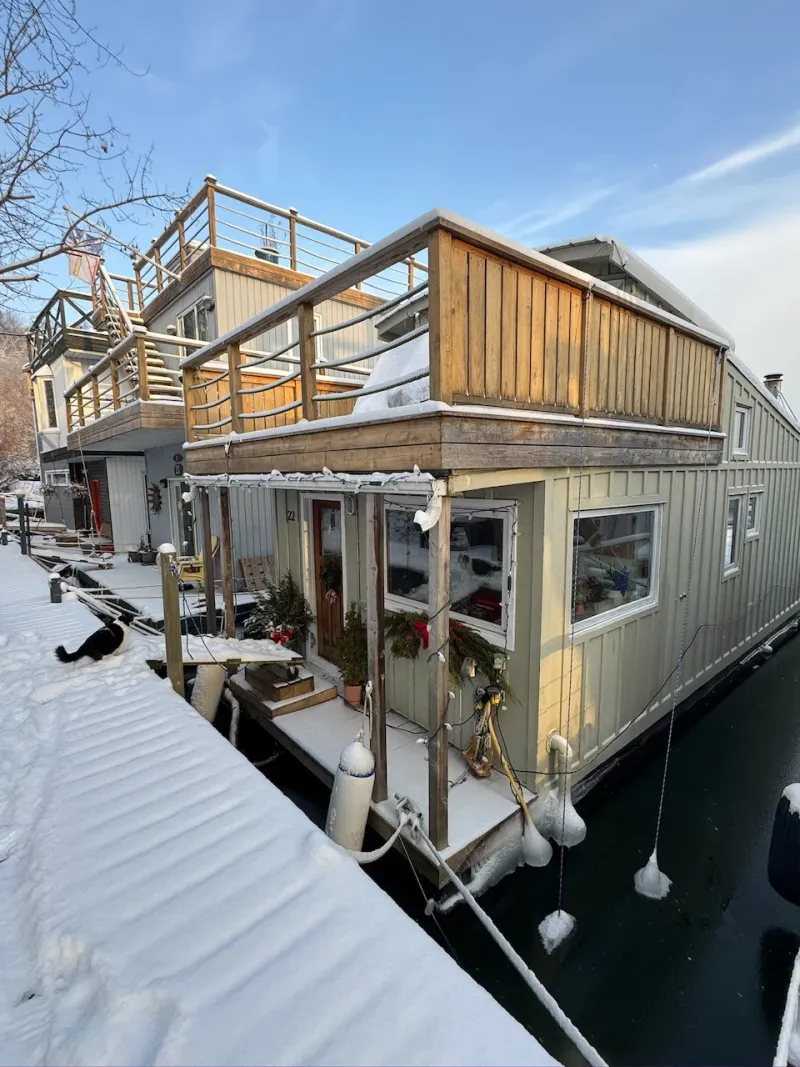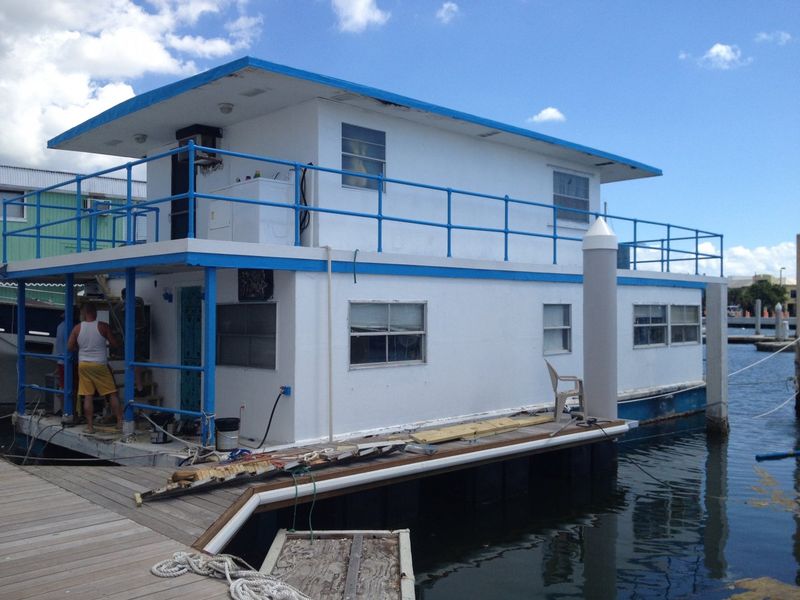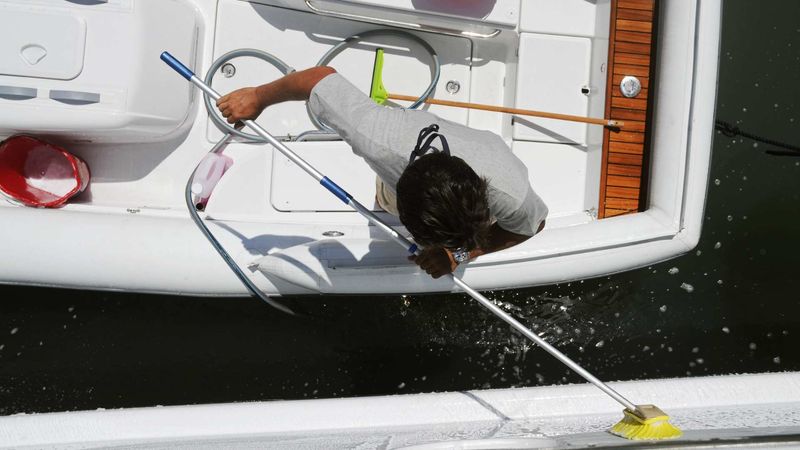Have you ever gazed at those charming houseboats bobbing gently on the water and wondered what life would be like aboard one?
The romantic notion of waking up to rippling waves and stunning sunrises can be alluring.
But beneath the picture-perfect facade lies a unique lifestyle with surprising challenges and unexpected joys that most landlubbers never consider. Are you ready to get to know them?
1. Storage Space Is Precious Gold
Forget walk-in closets or basement storage! Every inch counts when you’re floating on water. Most newcomers are shocked by how quickly their belongings overwhelm the limited cabinets and hidey-holes.
Creative solutions become second nature – from under-bench compartments to ceiling hooks for hanging items. You’ll become a master of minimalism, constantly asking yourself, “Do I really need this?” before bringing anything new aboard.
2. Maintenance Never Ends
Unlike traditional homes, houseboats demand constant attention. Water, sun, and movement create a triple threat that accelerates wear and tear on everything from hull to hinges.
What might seem like a small issue on land can quickly become critical on water. That tiny leak? It could sink your home. That loose fitting? It might cause electrical problems during the next rainfall. Weekends often transform into maintenance marathons rather than relaxation time.
3. Motion Sickness Can Strike Anytime
Even if you’ve never experienced seasickness before, living on water brings a whole new dimension to balance. Many first-timers are surprised when they suddenly feel queasy during a windy day or when a speedboat zooms past.
Your body eventually adjusts to the gentle rocking, but guests might not fare as well. Keeping motion sickness remedies on hand becomes as normal as stocking coffee. Some residents even develop what they call their “sea legs” – a slightly wider stance when walking on solid ground.
4. Weather Becomes Your Overlord
Mother Nature takes on a whole new significance when your home floats. A storm that land-dwellers might watch through windows becomes an all-encompassing experience that rocks, tilts, and tests your home’s integrity.
Weather apps transform from casual references to vital tools you check obsessively. Plans change based on wind forecasts, not just rain predictions. During severe weather, sleep becomes elusive as every creak and wave slap amplifies in the darkness.
5. Cozy Quarters Redefine Relationships
Imagine sharing a studio apartment that occasionally rocks and sways! The compact nature of houseboat living means you’ll become intimately familiar with your housemates’ habits, quirks, and personal space needs.
Arguments feel more intense when there’s nowhere to storm off to. Couples learn to communicate differently, developing signals and systems for sharing tight quarters. The upside? Deep bonds form quickly as you navigate both literal and emotional waters together.
6. Sound Travels In Mysterious Ways
Water acts as a perfect sound conductor, creating an acoustic environment unlike anything on land. Conversations from boats fifty feet away might sound like they’re happening in your living room.
Meanwhile, the symphony of water slapping hulls, halyards clanging against masts, and docks creaking becomes your constant soundtrack. Noise-cancelling headphones quickly become prized possessions for many floating residents.
7. Internet Connections Require Creativity
Working remotely sounds dreamy until your Zoom meeting freezes mid-presentation. Reliable internet becomes a constant quest for floating dwellers.
Solutions range from expensive cellular boosters to creative arrangements with nearby businesses. Many houseboaters become regulars at shoreside cafés with strong WiFi. Some even schedule important online activities around connectivity, planning critical calls when weather won’t interfere with signals.
8. Boating Skills Become Essential
Surprisingly, many people move onto houseboats without basic boating knowledge. This oversight quickly becomes apparent during the first emergency or necessary repositioning.
Understanding wind effects, current patterns, and docking techniques saves embarrassment and damage. Even stationary houseboats occasionally need moving for maintenance or slip changes. Navigating these situations without skills can lead to costly mistakes and strained relationships with marina neighbors.
9. Insurance Costs Can Shock Your System
When insurance agents hear “floating home,” their eyebrows rise along with their premiums. Specialized houseboat insurance costs significantly more than traditional homeowners’ policies. Finding companies willing to cover your aquatic dwelling requires persistence.
Many owners discover coverage gaps only after incidents occur. The combination of home and vessel creates unique risks that standard policies don’t address. Experienced houseboaters recommend working with specialized brokers familiar with marine living.
10. Marina Fees Add Up Quickly
The dream of escaping high rent or mortgage payments can evaporate when marina bills arrive. Prime locations in desirable areas command premium prices, often rivaling apartment costs.
Beyond slip fees, expect charges for electricity, water, parking, and amenity access. Some marinas assess fees based on vessel length, while others charge by the foot of dock space used. Location matters enormously – the difference between urban and rural marina costs can be thousands monthly.
11. Privacy Becomes a Luxury
Imagine living in a fishbowl where passersby can peer directly into your home. Marina life often means neighbors just feet away on all sides, with windows facing each other.
Curious tourists frequently walk docks, peering into vessels as though they’re museum exhibits. Window coverings become essential investments rather than decorative choices. Many houseboaters develop a sixth sense for when they’re being watched, quickly drawing curtains or retreating to more private areas.
12. Regulations Vary Wildly By Location
The legal landscape for floating homes resembles a patchwork quilt of inconsistent rules. One marina might allow permanent residency while another prohibits overnight stays.
Local ordinances, state laws, and federal regulations overlap in confusing ways. Some areas require specific waste management systems, particular insurance coverage, or regular inspection certifications that can significantly impact your budget and lifestyle.
13. Reselling Can Be Challenging
When it’s time to move on, selling your floating home isn’t as straightforward as traditional real estate. The market for houseboats remains niche, with fewer potential buyers. Financing options for purchasers are limited, as many banks view houseboats as risky investments.
Location significantly impacts resale value – a beautiful vessel in an undesirable marina might sit on the market for years. Savvy owners maintain detailed maintenance records to reassure potential buyers about the vessel’s condition.
14. Seasonal Changes Hit Harder
When winter arrives, floating homeowners face unique challenges unknown to land dwellers. Water pipes freeze more easily, heating costs soar as water pulls away warmth, and winter storms test both nerves and moorings.
Summer brings different issues – overheating interiors, increased boat traffic creating wake, and algae growth on hulls. Seasonal preparations become elaborate rituals rather than simple tasks. Many houseboaters in northern climates develop extensive winterization routines that take weeks to implement.
15. Inspections Become Regular Events
Forget annual home inspections – floating homes require frequent professional oversight. Hull integrity, electrical systems, and structural components need regular evaluation to prevent catastrophic failures.
Many insurance policies mandate professional inspections on specific schedules. These thorough examinations often reveal issues invisible to untrained eyes. Smart owners budget for both routine inspections and the inevitable repairs they uncover rather than being surprised by sudden requirements.
16. Cleaning Never Stops
Birds find your roof irresistible. Water spray leaves mineral deposits on windows. Algae grows on any surface touching water. Welcome to the never-ending cleaning cycle of houseboat life! External surfaces require frequent attention to prevent long-term damage.
Interior cleaning becomes equally important as humidity accelerates dust accumulation and mold growth. Many residents develop weekly routines addressing different areas of their vessel, knowing that deferred maintenance quickly becomes costly restoration.
17. The Views Make Everything Worthwhile
After all the challenges, why do people choose floating life? The answer becomes clear with the first sunrise that paints the water in golden hues right outside your window.
Wildlife visits become daily occurrences rather than rare events. The gentle rocking lulls you to sleep on calm nights. There’s an indescribable freedom in knowing your home could, theoretically, move to new vistas. Despite the complications, most houseboat dwellers insist the unique connection to nature and water makes every challenge worthwhile.

